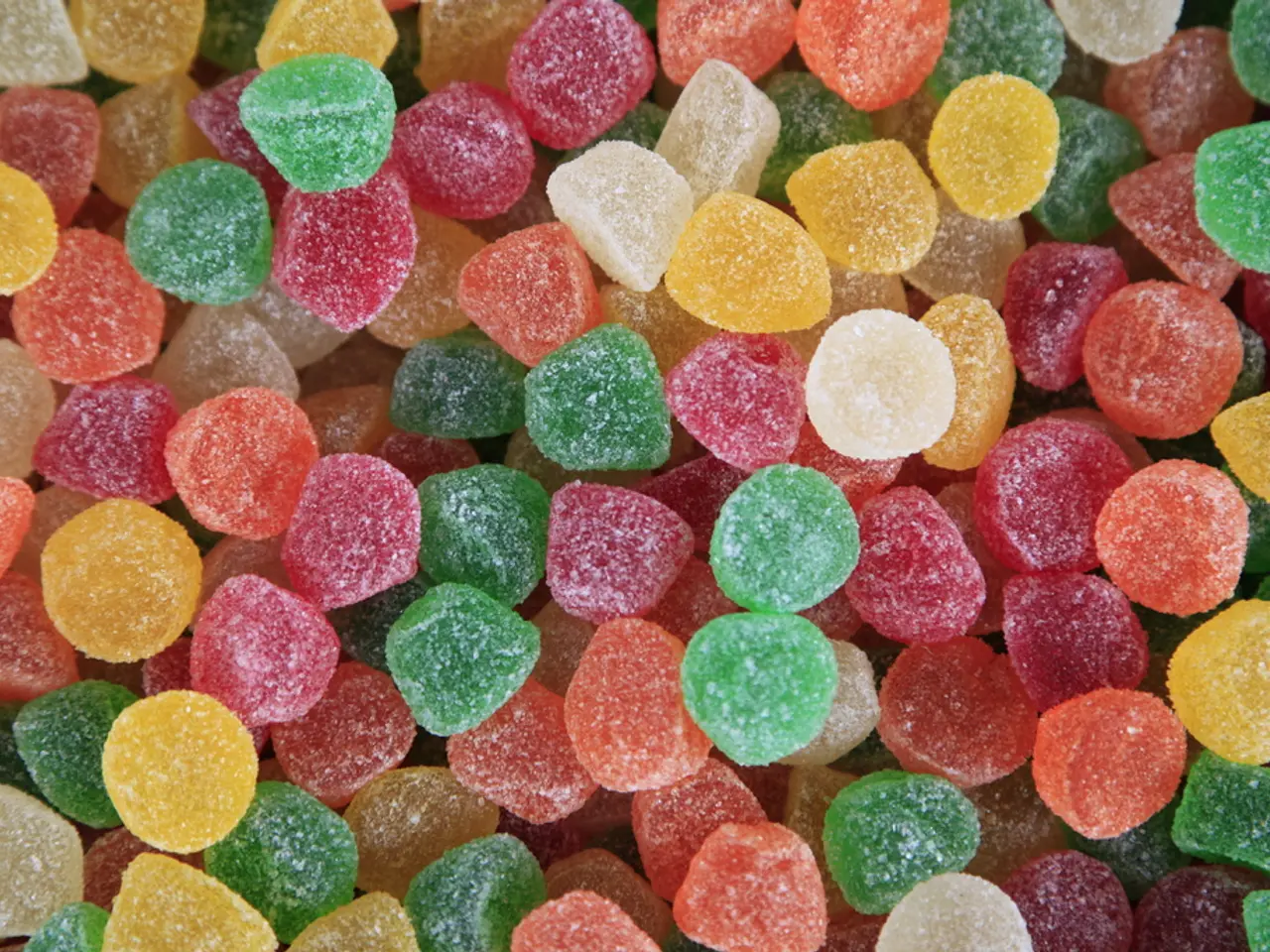Best Type of Sugar for Homebrewed Kombucha Production
Kombucha, the fermented tea drink known for its tangy taste and numerous health benefits, requires the right balance of sweetness to create a delightful beverage. Here's a guide to help you understand the role of sugar in kombucha brewing and flavouring.
During the fermentation process (F1), certain sugars are essential for the growth and activity of the kombucha mother (SCOBY), a symbiotic culture of bacteria and yeast. Recommended sugars include white and golden sugar, brown sugar, raw sugar, coconut sugar, molasses, pasteurized honey, and maple syrup. The typical quantity suggested is around 1 cup (approximately 200 grams) of sugar per 1 gallon (around 3.5 liters) of sweet tea base used for fermentation.
However, no sugar needs to be added during flavoring (F2) unless the kombucha is too acidic. In such cases, a little sugar can be added to rebalance the sweetness. It's important to note that unpasteurized honey may disrupt kombucha fermentation, but pasteurized honey can be used for brewing kombucha with honey following the Jun recipe.
Natural sweeteners like Stevia and monk fruit are non-fermentable and unsuitable for fermenting kombucha but can be used for flavouring if you want a beverage with no added sugar. On the other hand, artificial sweeteners such as erythritol, xylitol, and aspartame are non-fermentable and are best avoided during both fermentation and flavouring.
Sugars transform into organic acids and carbon dioxide during fermentation, giving kombucha its natural effervescence. The sweetness varies according to the type of sugar, so small adjustments may be necessary. For instance, brown, raw, and coconut sugars have a stronger taste and are rich in minerals, making them ideal for a richer, more complex flavor. Agave syrup, with its low glycemic index, can also be used to sweeten kombucha during flavouring.
In secondary fermentation aimed at boosting carbonation, an additional teaspoon of sugar per bottle is recommended before sealing, to fuel yeast activity and enhance fizz. However, it's worth noting that the amount of sugar added during fermentation does not directly affect the amount of sugar remaining in the bottle.
It's essential to avoid using sugars containing additives, such as icing sugar, coloured or flavoured sugar, as these can disrupt fermentation. The minimum quantity to start fermentation is at least 50 grams of sugar per litre of tea, while the maximum quantity for more intense flavours and more vigorous fermentation is up to 140 grams of sugar per litre.
In summary, granulated sugar around 1 cup per gallon of brewed tea is the common starting point, optionally supplemented by small amounts per bottle in secondary fermentation to increase carbonation. Other sugar varieties are possible, but granulated sugar and evaporated cane sugar are the preferred options for successful kombucha fermentation.
During the kombucha fermentation process (F1), certain sugars are essential, such as white and golden sugar, brown sugar, raw sugar, coconut sugar, molasses, pasteurized honey, and maple syrup, for the growth and activity of the kombucha mother (SCOBY). In contrast, natural sweeteners like Stevia and monk fruit, or artificial sweeteners such as erythritol, xylitol, and aspartame, are unsuitable for fermenting kombucha but can be used for flavoring if desired.




